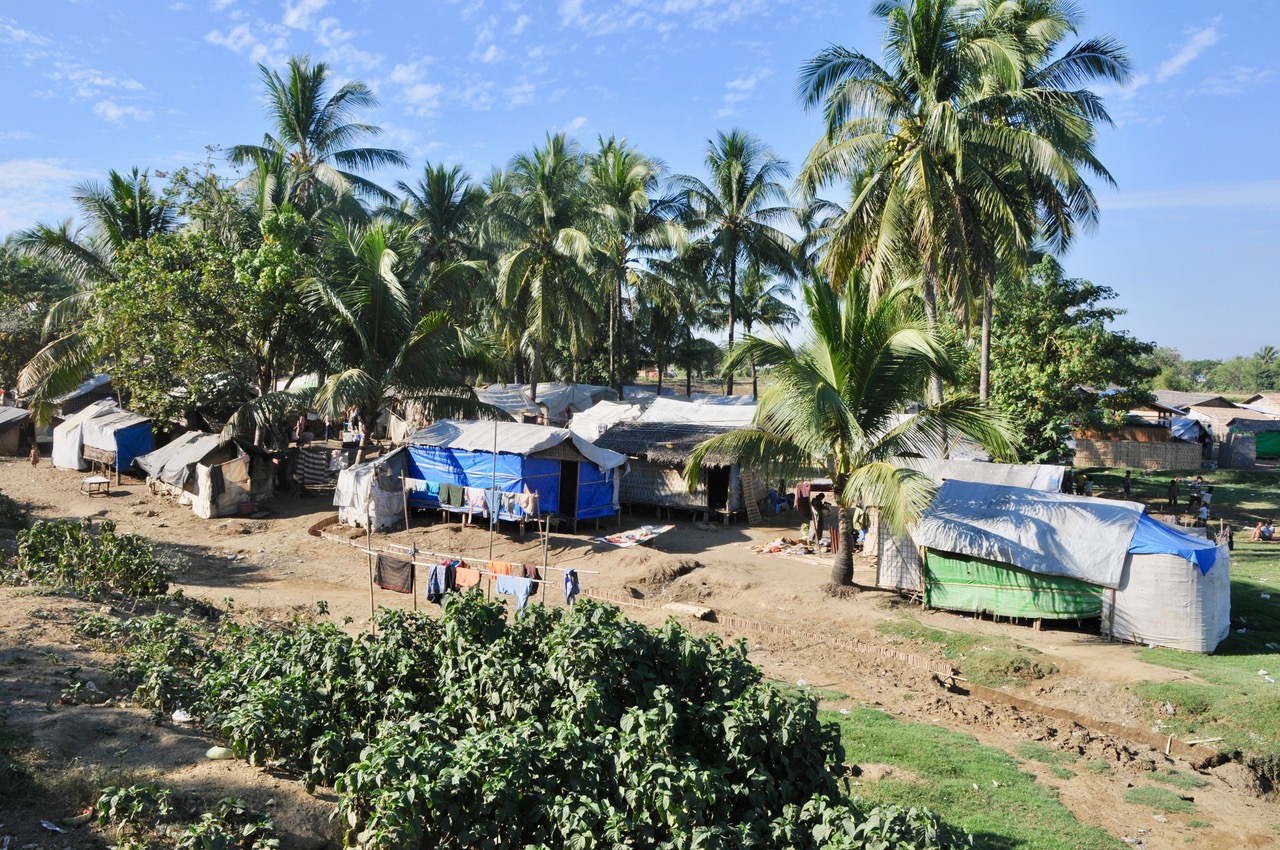|
|
|
Tensions are rising in Arakan (Rakhine State) where a ceasefire exists between the Myanmar military government and Arakan Army. On the surface, the relative stability contrasts with the chaos that has enveloped many other parts of the country following last year’s coup. In this commentary, Kyaw Lynn analyses the changing landscape highlighting that, while confrontations are occurring, neither side appears yet ready to return to open warfare. “Retaliatory” actions, though, are increasing.
These commentaries are intended to contribute to a broader understanding of the many challenges facing the country and its peoples.
See the complete list of all the Myanmar commentaries.
|
|
|
|
The Dynamics of Arakan Politics and the Possibility of Another War
A Myanmar Commentary by Kyaw Lynn
|
|
 An internally displaced persons camp near Sittwe, Rakhine State / Photo credit TNI
An internally displaced persons camp near Sittwe, Rakhine State / Photo credit TNI
|
|
|
Twenty months after an informal ceasefire between the Myanmar military and Arakan Army (AA), social and political stability in Arakan (Rakhine State) are deteriorating, leading many local people to worry about the future. Many changes have taken place in the country since the introduction of this de facto ceasefire, not least the coup by the military State Administrative Council (SAC) in February 2021. And it now seems that both parties to the agreement – the Myanmar military and AA – are starting to recalculate their military strategies and political interests. Tit for tat actions have become commonplace. This was highlighted on 22 June, when SAC troops arrested 30 local Rakhine people in response to the AA arresting three government staff from the “Intelligence and Investigation Department” in Mrauk-U, the ancient capital of Arakan and one of the most conflict-sensitive townships in Rakhine State.
Before this event, tensions were visibly growing between the SAC and the United League of Arakan (ULA), the political wing of the AA. In the preceding weeks, the AA had arrested military and police force members in Kyauktaw, Ponnagyun and Tin Nyo, Mrauk-U township, as well as Ramree in southern Rakhine State. As an explanation, the ULA-AA spokesperson Khaing Thu Kha told a party press conference on 14 June that they had been arrested in response to the growing number of ULA and AA members being seized by the SAC authorities in different parts of the state. “Hostage exchange” is possible, he said, if the SAC is willing. In the ULA-AA’s defence, he argued that the arrests were an “equivalent retaliation” for the SAC’s breaking the promises of the informal ceasefire not to arrest unarmed and non-uniformed members on both sides. Khaing Thu Kha also had sobering words of warning. During the press briefing, he repeatedly stated that the outbreak of “another war” could happen at any time and that mediation through third parties was not working.
The people continue to watch the situation closely. But the past month has not shown any notable improvements, and it seems that the spate of arrests are just the tip of the iceberg in revealing deeper reasons for the changing trends in Arakan politics. A critical time is approaching.
|
|
|
|
|
|
|
|
|